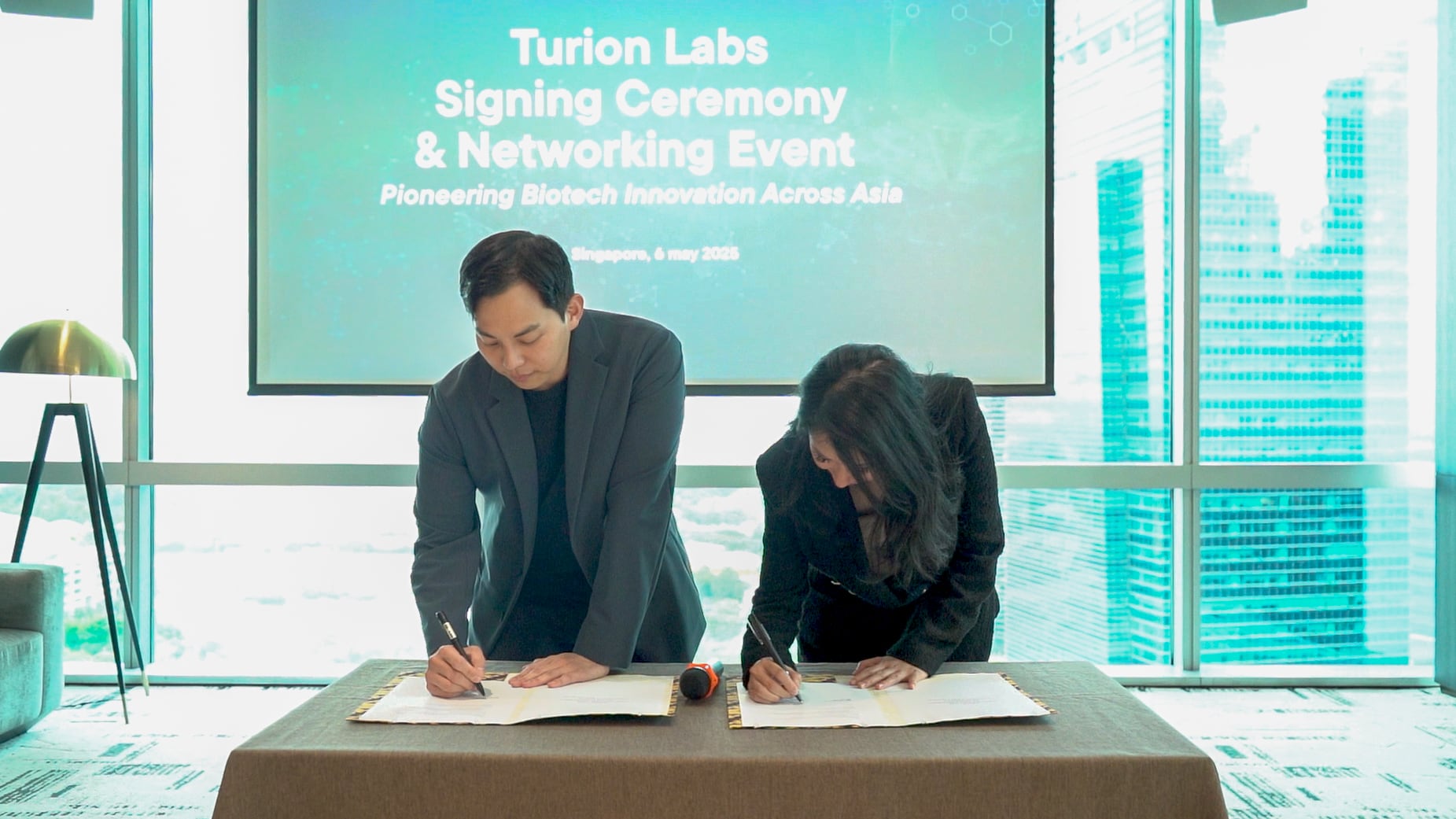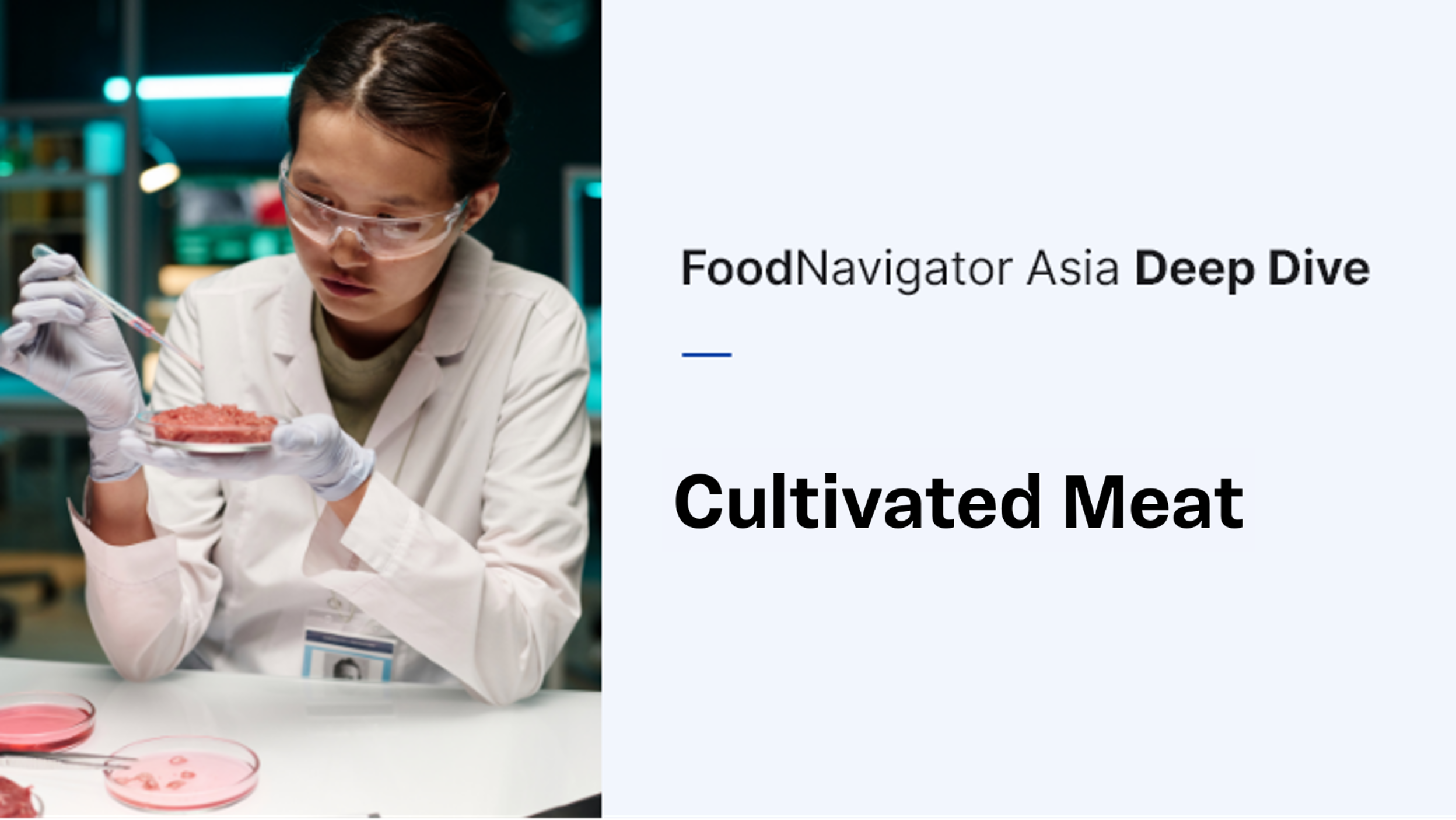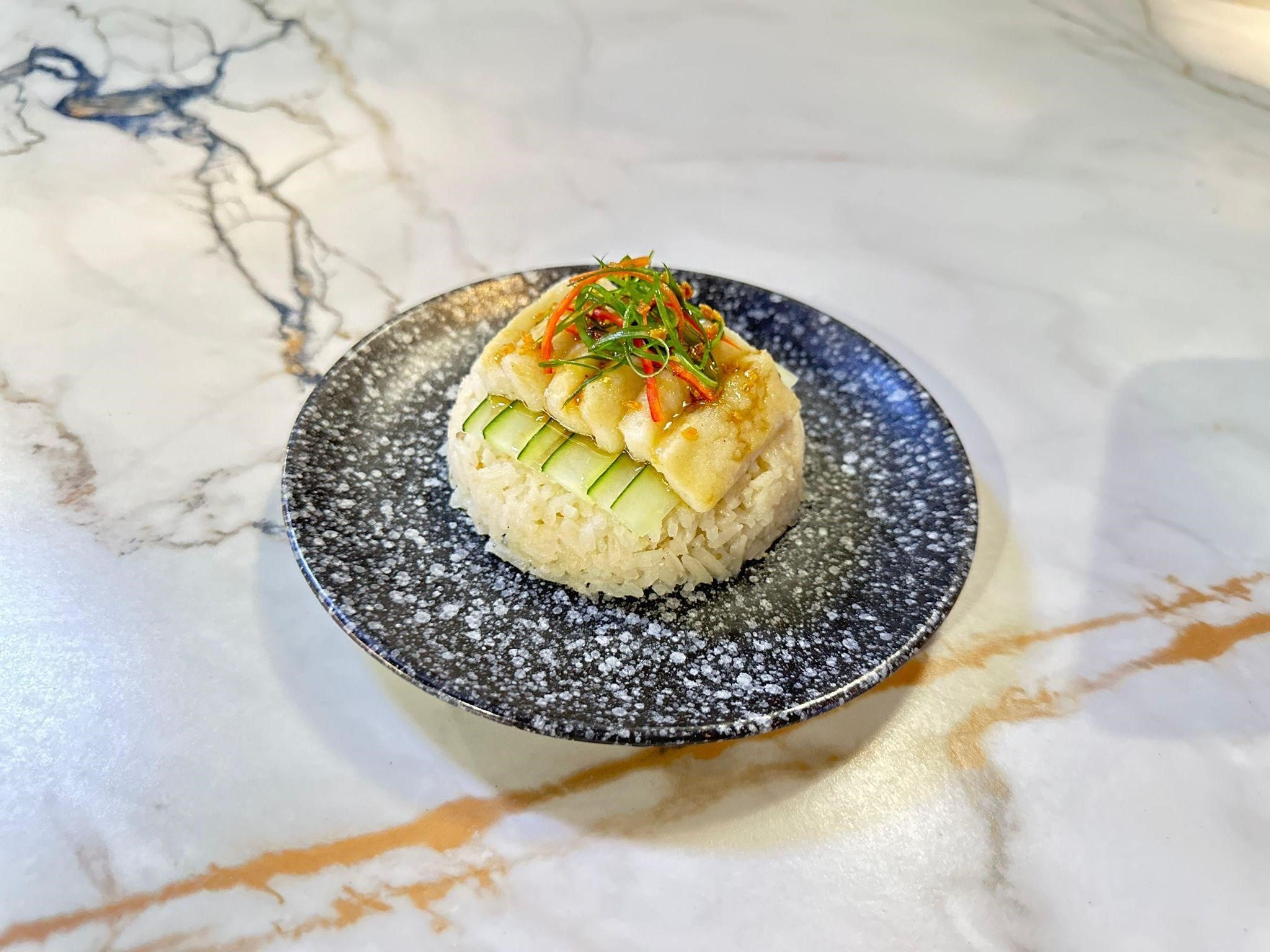These challenges spurred the 6 May launch of Turion Labs, South East Asia’s first full-stack biotech innovation platform, meaning it integrates everything from lab access to regulatory support into one unified service.
This one-stop hub is a joint venture between South Korean biotech accelerator S&S Lab and Indonesia’s venture builder Future Lestari.
It is headquartered in Singapore with a flagship site opening in Indonesia’s Biomedical Special Economic Zone in September this year.
Reducing start-up costs
According to S&S Lab CEO Dominic Jeong, Turion Labs can ease the financial burden on food tech start-ups by offering shared access to costly lab infrastructure.
Jeong is also CEO of food tech firm Simple Planet, which specialises in cell-based and functional foods.
Drawing from his own experience at Simple Planet, where high capital expenditure on equipment like bioreactors posed a major challenge, he stressed that such costs often limit the growth and runway of early-stage ventures.
Turion Labs addresses this by providing shared access to expensive infrastructure for small-batch or pilot-scale production, enabling firms to develop prototypes and test feasibility before scaling.
Access to costly infrastructure
Turion Labs provides key services and infrastructure needed to take a biotech idea from concept to commercialisation – they include shared lab facilities, contract research organisation (CRO) services, and regulatory support all rolled into one integrated platform.
“We wanted to help food tech start-ups lower their CAPEX – initial capital expenditure – so they can extend their runway. That’s the main goal.
“From my experience at Simple Planet, one of the biggest challenges is the high cost of setting up lab infrastructure.
“Bioreactors and other equipment are extremely expensive, and not every start-up can afford them. So our idea with Turion Labs is to provide access to this equipment and infrastructure to help others like us avoid that heavy upfront investment,” said Jeong.
He explained that in the novel food space, the basic requirement is to operate in GMP or GMP-like facilities, which also requires significant funding.
Turion Labs will provide these GMP-standard facilities so start-ups can conduct pilot production. Once they reach a certain scale, they can move out and build their own labs.
Jeong also noted the importance of open collaboration for the cultivated meat industry to see progress.
“Aggressive collaboration” needed
Jeong highlights the role of Turion Labs as a facilitator of open innovation.
He said: “I think in the cultivated meat industry, aggressive collaboration is essential.
“The core technology isn’t entirely new – it’s really about integrating various existing technologies into one place and then creating something new from it.
“Start-ups need to be in shared lab environments where they can access diverse technologies, identify collaboration opportunities, and improve their own capabilities.”
Jeong added that Turion Labs’ ties with major food companies will enable start-ups to run pilot tests and consumer studies, accelerating their path to market readiness.
“Another advantage is that we already have strong connections with major food conglomerates such as Nestlé and CJ.
“Once cultivated meat start-ups join our lab, they can use our platform to test their products or ingredients with these industry players – running pilots, proof-of-concept studies, and even consumer acceptance tests,” said Jeong.
While gauging consumer acceptance is important, Jeong advises against chasing trends, and prefers to prioritise building sustainable business models.
Expansion plans
Jeong also cautioned against conflating fundraising with actual revenue generation, stressing the importance of financial viability from the outset.
He said: “What founders really need to focus on is building a sustainable business model – even if they’re working with innovative technology. Many start-ups assume that raising money from investors automatically translates into revenue, but those are two different things.
“To me, sustainability means creating a business that can start generating revenue and reach profitability within three to five years.”
As for expansion plans, Jeong revealed that apart from the flagship site in Jarkarta this September, another lab is set to launch in Bangkok the same month, through collaboration with Chulalongkorn University.
An additional location in Malaysia is also in the pipeline, with Johor being a likely option.





